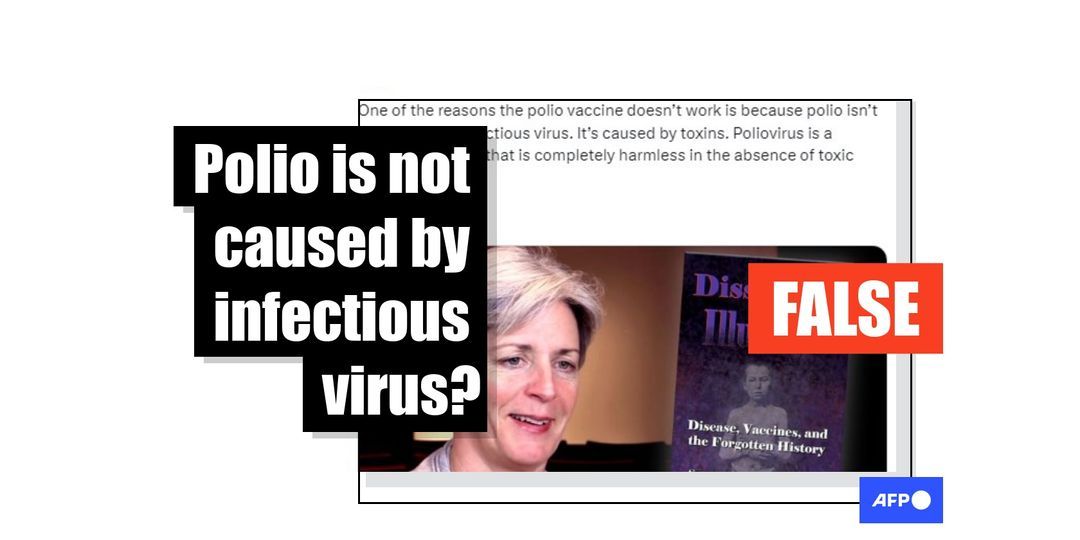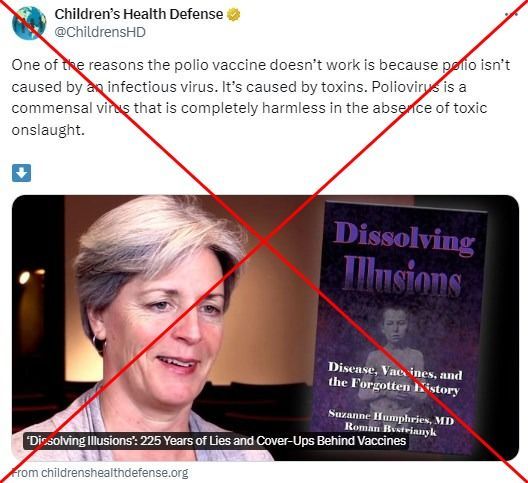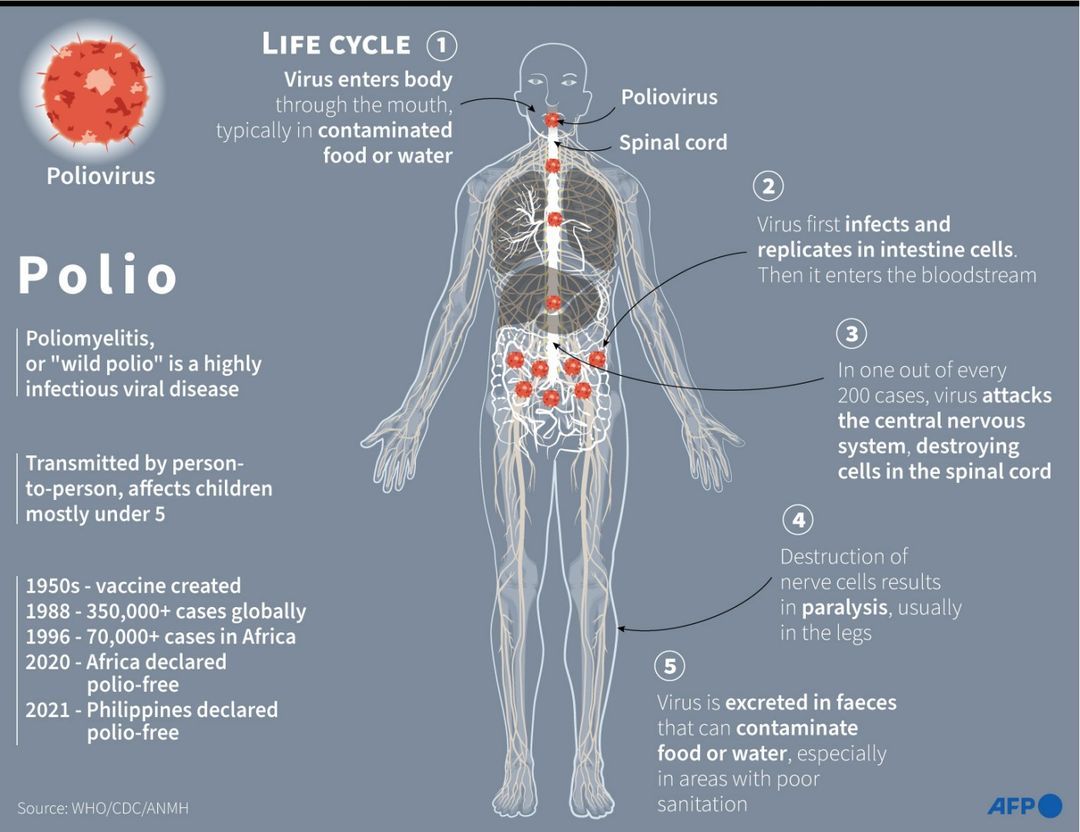
Thanks to vaccination, wild poliovirus has been eliminated in the United States and Canada — but social media posts claim these shots are not needed and that the disease is linked to toxins. This is false; research over many decades has found the life-threatening infections come from the poliomyelitis virus, and that immunization protects against contracting polio from people coming from other countries.
“One of the reasons the polio vaccine doesn’t work is because polio isn’t caused by an infectious virus. It’s caused by toxins,” claims Children’s Health Defense in a March 1, 2024 post on X.
AFP has repeatedly fact-checked vaccination claims from the advocacy group, which is headed by US presidential candidate Robert F Kennedy Jr.
The latest post links to an interview between nephrologist Suzanne Humphries, co-author of the debunked 2013 book “Dissolving Illusions” (archived here), and Joseph Mercola, an osteopathic physician whom the Center for Countering Digital Hate named one of the most influential purveyors of anti-vaccine content on social media.
“According to Humphries, there are no worthwhile vaccines, not even smallpox or tetanus, and certainly not the polio vaccine,” Mercola says in the article.

The claim has circulated elsewhere on Facebook, including in French, and on Instagram.
The posts are part of a deluge of misinformation undermining public confidence in routine shots that prevent disease in children in the United States and Canada (archived here and here).
Contrary to online claims, the polio vaccine is effective in protecting against the virus.
In 2023, the Global Polio Eradication Initiative said health workers vaccinated more than 400 million children, “preventing an estimated 650,000 cases of paralysis from polio and saving the lives of up to 60,000 children” (archived here).
Poliovirus
Poliovirus is highly contagious and can spread via people who do not show symptoms, according to the US Centers for Disease Control and Prevention (CDC) (archived here).
Polio “is not caused by a toxin but by a virus, the poliovirus,” Walter Orenstein, an Emory University professor of medicine specializing in infectious diseases (archived here), previously told AFP.
Most people who get infected are asymptomatic, although some suffer flu-like symptoms. The World Health Organization (WHO) says one in 200 infections leads to “irreversible paralysis (usually in the legs)” (archived here).
The CDC warns: “Paralysis is the most severe symptom associated with poliovirus because it can lead to permanent disability and death.” There is no cure for paralytic polio.
Orenstein said the best way to eradicate polio is to vaccinate “all persons for whom they are recommended.”
Polio vaccine
In 1954, three scientists won a Nobel Prize (archived here) for their research on the poliomyelitis virus, which paved the way for a vaccine. The first shot was approved in the United States in 1955 (archived here).
Thanks to widespread vaccination campaigns, wild polio was eliminated — no cases have occurred in the country since 1979, according to the CDC (archived here).
The Public Health Agency of Canada reports the last case of wild poliovirus there was in 1977. In 1994, the WHO certified the country was free of the wild virus (archived here).

Despite this success, vaccination remains key to protecting communities, according to Jessica Justman, a professor of medicine and epidemiology at the Columbia Mailman School of Public Health (archived here).
“We have not achieved global eradication, so we need to maintain vaccines so that people, and particularly children, can be protected from becoming paralyzed by polio,” she told AFP on March 13, 2024.
Despite just a small percentage of infections leading to permanent disability, Justman said the paralysis “affects your whole life” and is “not something that goes away.”
‘Something that we can trust’
Both oral and injected polio vaccines are administered worldwide. But in rare cases, the oral vaccine — which includes live attenuated or weakened virus — can mutate, leading to vaccine-derived poliovirus (archived here).
Due to this risk, the United States and Canada currently only offer inactivated polio vaccine (IPV). Given in the leg or arm, depending on the patient’s age, the shot protects against paralytic disease.
Justman, who is also senior technical director of the global health center ICAP, said families can have confidence in the vaccine offered in North America.
“There’s been so much experience and so much thought in refining and tweaking the polio vaccine formulation, and the strategies of when to use it and where to use it, that yes, it’s something that we can trust now more than ever,” she said.
The best available CDC data estimates that 93 percent of children born in 2019 and 2020 had received the recommended three doses of polio vaccine by 24 months of age (archived here).
“Communities that don’t vaccinate are putting their community members — and in this case, in terms of polio — their children at risk,” Justman said.
More of AFP’s reporting on misinformation surrounding the polio vaccine is available here.


